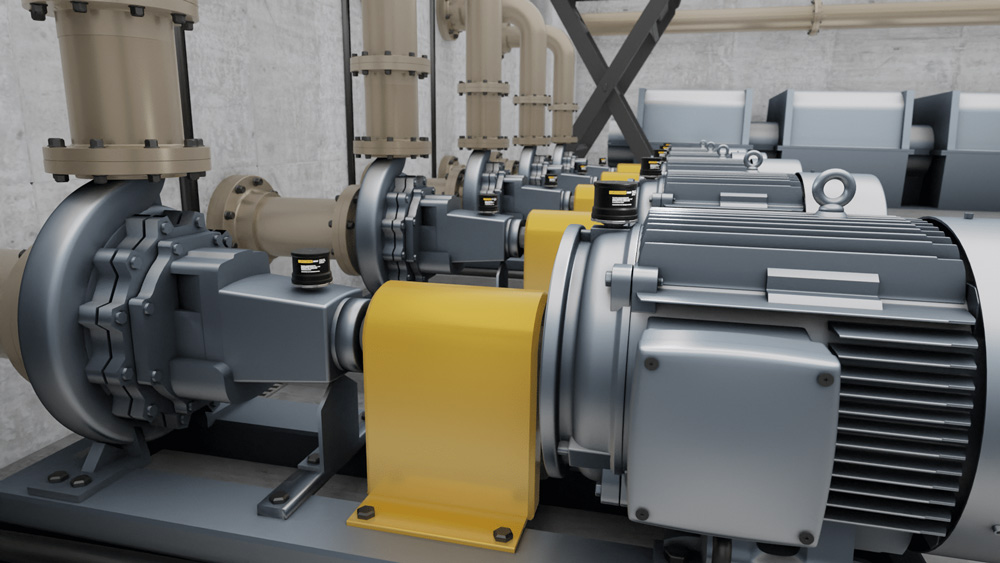Understanding Motor and Pump Efficiency
In the realm of mechanical and hydraulic systems, the efficiency of motors and pumps is paramount. Efficiency in these systems can be defined as the ratio of useful output energy to input energy, specifically how well electrical energy is transformed into mechanical and hydraulic energy. Achieving high efficiency is crucial for reducing energy consumption, extending equipment life, and improving overall system performance. This article delves into the significant role that high-quality bearings play in enhancing the efficiency and performance of motors and pumps.
What is Motor and Pump Efficiency?
Motor and pump efficiency refers to the effectiveness with which these machines convert electrical energy into mechanical and hydraulic energy. High efficiency means that a greater proportion of the electrical energy is utilized for the intended mechanical work, with minimal losses due to heat, friction, or other factors.
Factors Affecting Efficiency
Several factors influence the efficiency of motors and pumps, including:
- Design and Construction: The design of the motor or pump and the materials used in construction significantly impact efficiency.
- Bearing Quality: Bearings play a crucial role in reducing friction and wear, directly affecting energy consumption and performance.
- Maintenance and Operation: Regular maintenance and proper operation are essential for sustaining high efficiency.
The Importance of Bearings in Mechanical Systems
Role of Bearings
Bearings are critical components in mechanical systems, facilitating smooth and efficient rotation by reducing friction between moving parts. In motors and pumps, bearings support the rotational movement of shafts, ensuring stability and precision.
Types of Bearings
Various types of bearings are used in different applications, including:
- Ball Bearings: Known for their versatility and ability to handle both radial and axial loads.
- Roller Bearings: Suitable for heavy-duty applications due to their capacity to support large radial loads.
- Tapered Roller Bearings: Designed to handle combined loads (both radial and axial).
- Angular Contact Ball Bearings: Ideal for applications requiring high-speed rotation and reduced friction.
Enhancing Efficiency with High-Quality Bearings
Benefits of High-Quality Bearings
Using high-quality ball and roller bearings can significantly improve the efficiency of motors and pumps by:
- Reducing Friction: Optimized geometries and honed raceways minimize friction, allowing smoother operation and lower energy consumption.
- Generating Less Heat: Less friction results in reduced heat generation, extending the life of the grease and the bearing itself.
- Supporting Higher Speeds: Premium quality bearings can withstand higher speeds, enhancing performance and operational efficiency.
Material and Design Considerations
High-quality bearings are constructed using premium bearing steels and advanced manufacturing techniques, ensuring durability and reliability. Features like honed raceways and optimized geometries are designed to maximize efficiency and performance.
Selecting the Right Bearings for Your Application
Analyzing Bearing Needs
Choosing the appropriate bearing involves analyzing the specific needs of the application, such as load capacity, speed requirements, and operating conditions. Consulting with bearing manufacturers can help identify the best options for achieving optimal performance and efficiency.
Case Study: From Tapered Roller Bearings to Angular Contact Ball Bearings
In some applications, transitioning from traditional matched tapered roller bearings to modern angular contact ball bearings can yield significant efficiency gains. Angular contact ball bearings offer lower friction and higher speed ratings, making them suitable for high-performance applications.
Practical Steps to Improve System Efficiency
Regular Maintenance and Inspection
Maintaining bearings through regular inspections, lubrication, and cleaning is essential for sustaining efficiency and preventing premature failures. Establishing a maintenance schedule ensures that bearings operate optimally and extends their service life.
Upgrading to High-Quality Bearings
Upgrading to high-quality bearings with advanced materials and designs can lead to substantial improvements in system efficiency. This investment pays off in the long run through reduced energy costs and enhanced equipment longevity.
Monitoring Performance
Implementing a monitoring system to track bearing performance can help identify issues early and prevent costly downtime. This proactive approach allows for timely maintenance and adjustments, ensuring continuous efficient operation.
Conclusion
High-quality bearings are indispensable in enhancing the efficiency and performance of motors and pumps. By reducing friction, generating less heat, and supporting higher speeds, these bearings play a crucial role in converting electrical energy into mechanical and hydraulic energy effectively. Selecting the right bearings and maintaining them properly are vital steps toward achieving optimal system performance and efficiency. As industries strive for greater energy efficiency and cost savings, the importance of using high-quality bearings cannot be overstated.
